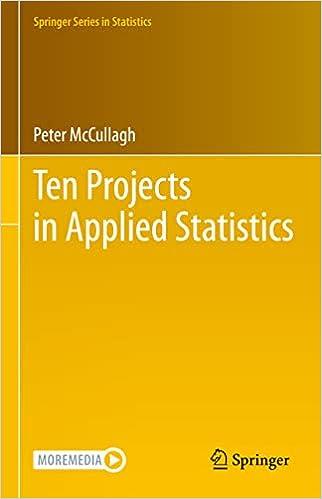Suppose that (Y_{1}, ldots, Y_{n}) are independent and identically distributed with density [ frac{1}{2 pi}(1+psi cos y)(1+lambda
Question:
Suppose that \(Y_{1}, \ldots, Y_{n}\) are independent and identically distributed with density
\[
\frac{1}{2 \pi}(1+\psi \cos y)(1+\lambda \sin y)
\]
on the interval \(-\pi
\[
L(\psi, \lambda ; y)=L_{1}(\psi ; y) \times L_{2}(\lambda ; y) .
\]
Show that the likelihood factorization is also a density factorization, i.e., for fixed \(\psi\), that \(L_{1}(\psi ; y)\) is a probability density on \((-\pi, \pi)^{n}\), and likewise for \(L_{2}\). Does it follow that \(R\) and \(S\) are independent?
Fantastic news! We've Found the answer you've been seeking!
Step by Step Answer:
Related Book For 

Question Posted:





